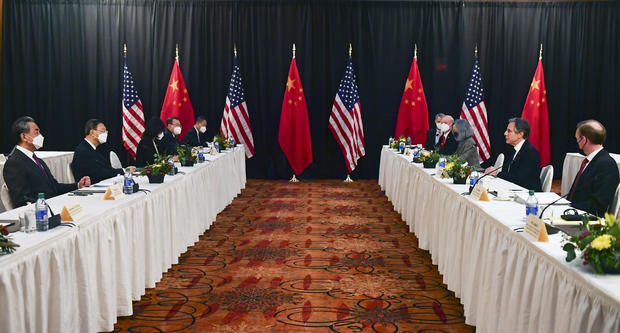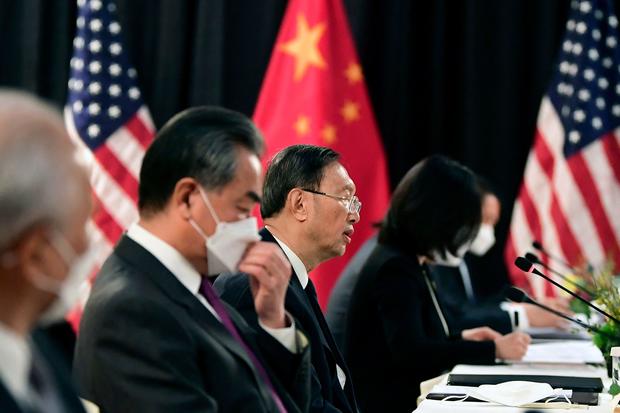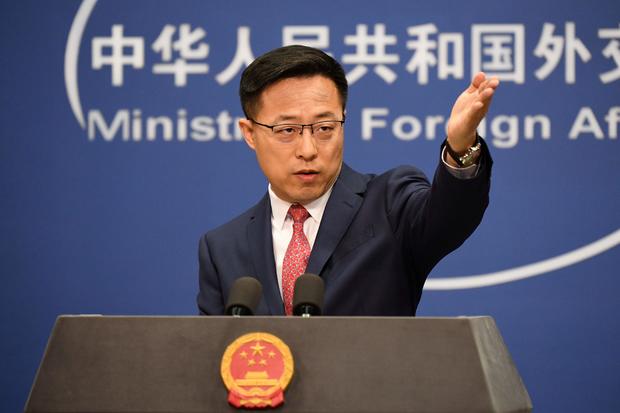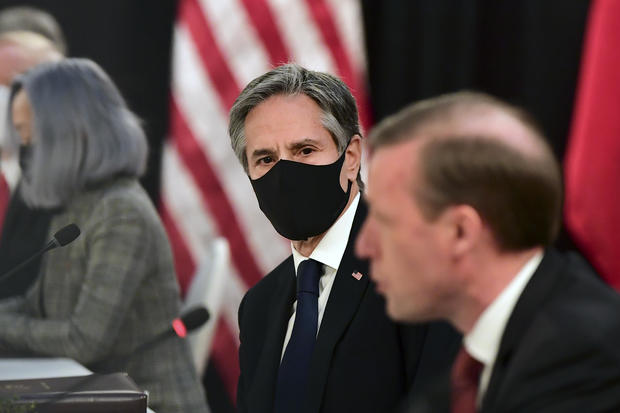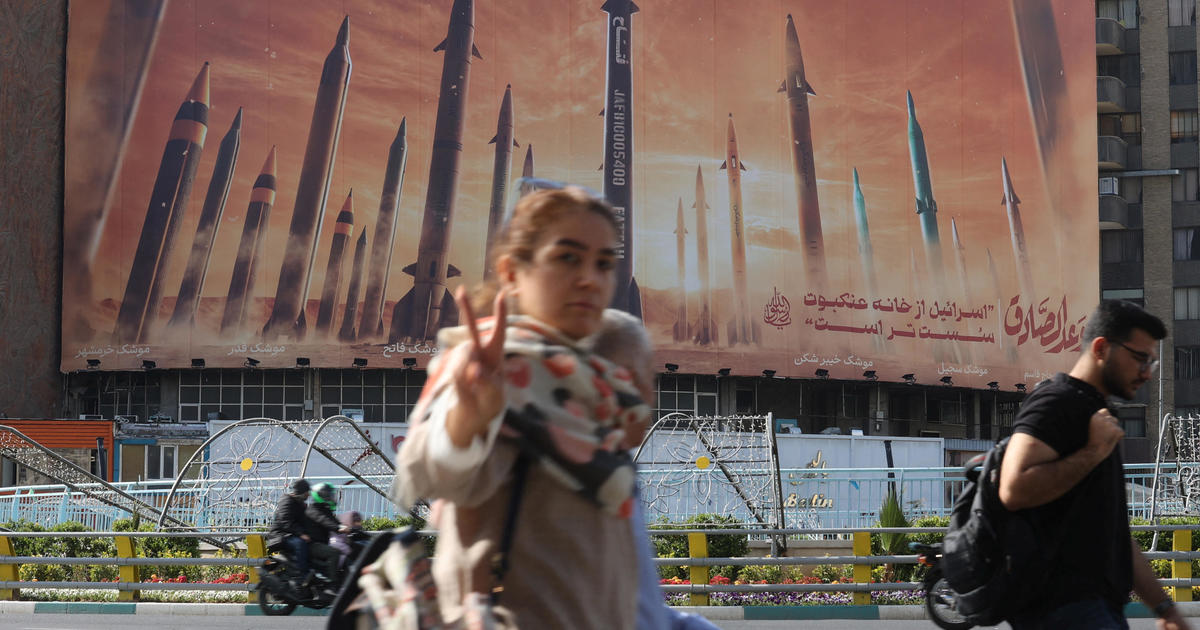Sparks fly in the 1st direct, high-level U.S.-China talks of the Biden era
Beijing — The top diplomats from the U.S. and China opened a new chapter in bilateral ties on Thursday in what proved to be one of the most undiplomatic episodes in recent memory. U.S. Secretary of State Antony Blinken and National Security Advisor Jake Sullivan hosted their counterparts, top diplomat Yang Jiechi and Foreign Minister Wang Yi, in Anchorage, Alaska for the first official, face-to-face government talks between the world's two biggest economies under the Biden administration.
Within minutes, the barbs began to fly.
"The United States' relationship with China will be competitive where it should be, collaborative where it can be and adversarial where it must be," Blinken said in his opening statement, adding that Washington harbored "deep concerns with actions by China, including in Xinjiang, Hong Kong, Taiwan, cyberattacks on the United States, and economic coercion toward our allies."
Blinken's reference to "coercion" of American allies came after he noted his recent return from Japan and South Korea — which he said were both "very interested" in the outcome of the talks in Alaska. He stressed the U.S.' commitment to strengthening "the rules-based international order."
"The alternative to a rules-based order is a world in which might makes right and winners take all, and that would be a far more violent and unstable world for all of us," warned Blinken.
Yang Jiechi fired back in his opening remarks — which American officials said went on for much longer than both parties had agreed to.
"With Xinjiang, Tibet, and Taiwan, they are an inalienable part of China's territory," said Yang. "China is firmly opposed to U.S. interference in China's internal affairs."
For several minutes Yang highlighted a series of proclaimed achievements by Beijing, including gaining the Chinese people's support for "Chinese-style democracy."
"According to opinion polls, the leaders of China have the wide support of the Chinese people," he said, boasting that the Chinese Communist Party had also managed "to end absolute poverty for all people in China."
Yang prodded Washington, saying he hoped "the United States will do better on human rights," and arguing that the Black Lives Matter movement, "did not just emerge over the past four years. The slaughter of African Americans has always been a problem."
"China urges the U.S. side to fully abandon the hegemonic practice of willfully interfering in China's internal affairs," added Foreign Minister Wang in follow-up remarks. "This has been a longstanding issue and it should be changed. It is time for it to change. And in particular, on the 17th of March the United States escalated its so-called sanctions on China regarding Hong Kong, and the Chinese people are outraged by this gross interference in China's internal affairs."
Wang also criticized new sanctions imposed by Washington on Beijing just a day before the Chinese delegation landed on U.S. soil.
"This is not supposed to be the way one should welcome his guests, and we wonder if this is a decision made by the United States to try to gain some advantage in dealing with China, but certainly this is miscalculated and only reflects the vulnerability and weakness inside the United States," the foreign minister said.
"Explosives" and drama
Responding to the first day's acrimony on Friday, Chinese Foreign Ministry spokesman Zhao Lijian told reporters in Beijing that it was the U.S. officials who first failed to "respect the timings that had been agreed upon for the relevant remarks."
"It is the U.S. that first provoked and stirred conflict," Zhao added, likely alluding to the new sanctions. "When the members of the Chinese delegation arrived in Alaska, not only did they experience Alaska's frigid weather, but they also experienced the way that their U.S. hosts treat their guests."
"For both sides, from the start of the opening remarks, the venue totally reeked of explosives and was full of dramatic colors," he said. "This was not China's original intention."
U.S.-China experts in Beijing weighed in on the first day of the two-day summit with differing degrees of pessimism and optimism.
"It is inevitable that Sino-U.S. relations will deteriorate further after the Anchorage talks," Shi Yinhong, a professor of international relations at Beijing's Renmin University, told CBS News. "The top diplomats of the two countries repeated the fundamental positions that they had announced many times. That is: China's internal affairs must not be interfered. The Biden administration is determined to speak to China from a 'position of strength.'"
But Sun Zhe, co-director of Columbia University's China Initiative and the former director of the Center for U.S.-China Relations at Tsinghua University, said the terse exchange in Anchorage was merely a reflection of "the difficult time in bilateral relations."
"It would be good for both parties to speak out their mind," said Sun, suggesting the blunt conversation could actually serve to deepen the relationship and understanding of each government's positions.
Talking to the home audience
Sun also suggested that the "show" in Alaska was likely "double-edged diplomacy," intended to galvanize each countries' domestic audience as much as deliver a message to a global adversary.
Reaction on Chinese social media platforms appeared to show success in that first objective. The U.S.-China talks were the top-trending hashtag on Weibo, China's Twitter-like platform, with more than 1.4 billion mentions by late Friday afternoon local time.
A representative sample of the posts being shared: "The U.S. has no manners at all." "China has the style of a great power." "When it comes to China's positions, we will never give in." "It is difficult for the U.S. to be honest." "The U.S. always uses a double-standard."
In final public remarks on Thursday, before the diplomats went into closed door meetings in Anchorage, each side warned the other to back down.
"I recall well when President Biden was vice president and we were visiting China," said Blinken. "There was much discussion then, including with then-Vice President Xi Jinping, and Vice President Biden at the time said: 'It's never a good bet to bet against America,' and it's true today."
"There is no way to strangle China," said Yang Jiechi. "Our history will show that one can only cause damages to himself if he wants to strangle or suppress the Chinese people."
CBS News' Grace Qi contributed to this report.
